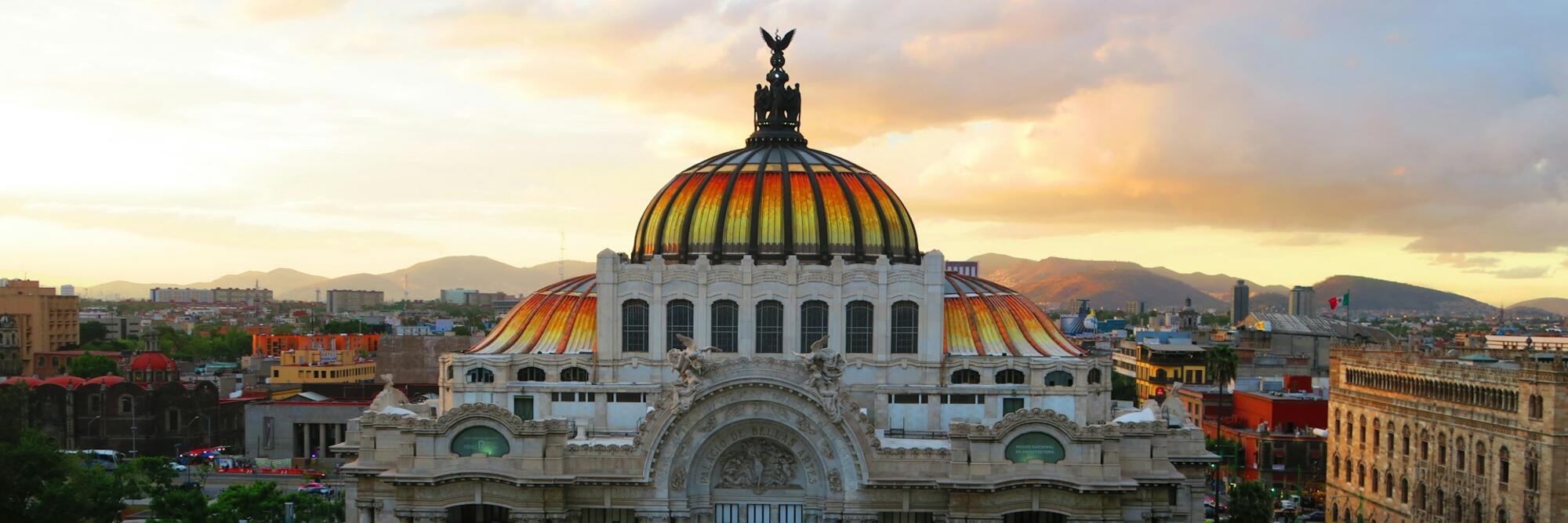Thilini is a Sri Lankan-born expat who lived in Australia before moving to Mexico. Although she made the move for the purpose of travelling, she stuck around and now writes from her home in Mérida, while also working on some other projects. Check out her fantastic tips and advice on how to start your very own 'remote business life' on her blog, Momentsing.
About Thilini
Q: Where are you originally from?
A: Sri Lanka and Australia (I’m originally from Sri Lanka and later moved to Australia. So, I’m a Sri Lankan Australian).
Q: Where are you living now?
A: In Mérida, Mexico.
Q: When did you move here?
A: I moved to Mexico in March 2019 and to Mérida in December 2019.
Q: Did you move here alone or with family?
A: I moved with my partner.
Q: Why did you move; what do you do?
A: I decided to leave my job and financial career in Sydney to travel for a while, using Mexico as a base. After a year, the pandemic transpired, and we decided to stay on and start a remote entrepreneurial journey.
Currently, I am a writer and blogger. I’m also working on other entrepreneurial ideas.
Living abroad
Q: What do you enjoy most about Mérida? How would you rate the quality of life compared to your home country?
A: I mostly enjoy the relaxed lifestyle and interesting things to see. For example, I love the cultural events, archaeological sites with pyramids, cenotes (sinkholes), beaches, nature sights, and good food.
I believe Australia has a higher quality of life overall. But here in Mérida, we have access to good facilities including great healthcare. So, it works for us.
Q: Any negatives? What do you miss most about home?
A: In Mérida, a negative can be the heat, especially during summer, which is sometimes unbearable. But you get used to it. I miss my friends and hanging out with them.
Q: What are the biggest adjustments you had to make when settling into expat life here? Did you experience any particular elements of culture shock?
A: I had to adapt to things happening at a slower pace than what I was used to in Sydney. But I was born and raised on a tropical island. So, in a way, the slowness wasn’t completely new.
I started learning Spanish while I was living in Sydney, and knew the basics by the time I got here. That really helped.
Q: What’s the cost of living compared to home? What is cheap or expensive in particular?
A: The cost of living is much cheaper in Mérida compared to Sydney, which is one of the most expensive places to live. I think most things are cheaper here. But foreign products, in particular, can be expensive in Mexico.
Q: How would you rate the public transport? What are the different options? Do you need to own a car?
A: In some areas, public transport is widely available, but the comfort levels can be basic. Within cities, taxis and ride-hailing services are widely available. We have a car, and it’s definitely handy to have one, depending on the area. For long-distance travel, there are good luxury bus options between key places.
Q: How would you rate the healthcare in Mérida? Have you had any particularly good/bad experiences with regards to doctors and hospitals? Are there any hospitals you would recommend?
A: I think there’s good healthcare in Mérida, including private healthcare options at relatively cheaper rates. I’ve had great experiences with general check-ups, having bloodwork done, seeing specialists, and dental care. There hasn’t been anything to complain about (so far). I’ve been to Hospital Faro de Mayab in Mérida to see a specialist and found the service to be very good.
Q: What are the biggest safety issues facing expats living in Mérida? Are there any areas expats should avoid?
A: Mérida is considered one of the safest places in Mexico. But expats should take general safety precautions like locking their house doors, being careful with personal belongings, and being observant when withdrawing money from ATMs. When traveling interstate and to other regions, I recommend using highways (toll roads) and not driving at night.
There are some areas in Mexico that are considered unsafe. The best is to research the area before traveling. Since it’s a large country, situations can vary widely. So, if an area sounds particularly dangerous, you can avoid it. There’s still plenty to do elsewhere.
Q: How do you rate the standard of housing in Mérida? What different options are available for expats?
A: The housing is pretty good. Expats can get a house with a backyard and pool (which is a popular option, probably due to the heat) or an apartment/unit. There are also options to share or rent rooms. Sometimes there can be higher price tags aimed at expats. Speaking Spanish can help in handling such situations.
Q: Any areas/suburbs you’d recommend for expats to live in?
A: If you’re after a relaxed lifestyle with decent facilities, I’d recommend North Mérida. But if you want to be around lots of activities, restaurants, and bars, then el Centro is good. Some areas in the city can get flooded during heavy rains. That’s something to check before buying or renting.
Meeting people and making friends
Q: How tolerant are the locals of foreigners? Is there any obvious discrimination against particular religions or women etc.?
A: I’ve found locals to be very welcoming, and have heard ‘welcome to Mexico’ many times. Personally, I haven’t faced any discrimination or heard of any yet.
Q: Was it easy meeting people and making friends? How did you go about meeting new people?
A: Unfortunately, the pandemic happened soon after we moved to Mérida. So, we weren’t able to mingle as much. But we’ve still met some people, both locals and expats, at different events and online.
Q: Have you made friends with locals or do you mix mainly with other expats? What advice would you give to new expats looking to make friends? Any social/expat groups you can recommend?
A: Both. I prefer to get to know locals, because for me, that’s part of living in a place. I’ve also gotten to know some expats. But the pandemic-related restrictions hindered socialising.
I’d say to learn some Spanish because connecting with locals will be easier once you speak the language, even a little. But Mérida is quite multicultural, so you can meet people from a variety of backgrounds.
There are some active Facebook groups for expats based in Mérida and Yucatán, to connect with other expats, share tips, and get advice.
About working in Mérida
Q: Did you have a problem getting a visa or work permit? Did you tackle the visa process yourself or did you enlist the services of an immigration consultant?
A: I first got a temporary residency (and later renewed it) and did it myself. But the temporary residency didn’t come with work rights, and this was fine for a while because I wasn’t doing any lucrative work. But when I decided to work online, I looked into the process and received two different answers. Some said we can work online for non-Mexican sources, get paid in the home country and pay taxes there, without a work permit. Others said we needed one.
After analysing my individual circumstances and getting professional advice, I decided to become a tax resident here and get a work permit, so I could also work for Mexican sources. I got the services of a lawyer for the work permit process, because it seemed a little complex. Since each individual’s circumstances can be different, I recommend getting professional advice, as required.
Q: What’s the economic climate like in Mérida? Do you have any tips for expats looking to find a job there?
A: Expats tend to work online or have businesses because local wages can be low (depending on where you’re from). If you’re looking for a local job, make sure you have a work permit or can get one. Facebook groups might be useful to make connections and see how others have gone about it.
Q: How does the work culture differ from home? Do you have any tips for expats doing business in the city/country?
A: From what I know, people here have much fewer annual leave days than in Australia. Here in Mérida, the overall culture is relaxed. If you want to start a business, it might be best to get some professional advice to understand the different business structures you can set up and the rules around taxes, etc.
Family and children
Q: Did your spouse or partner have problems adjusting to their new home? Do you think there are any specific challenges for a trailing spouse?
A: No, because my partner was born in Mexico and spent a part of his childhood here, before moving to Texas. He also speaks fluent Spanish. I think learning some Spanish and researching the area and its atmosphere in advance will help a spouse/partner adjust to life in Mexico.
And finally…
Q: Is there any other advice you would like to offer new expat arrivals?
A: Expect things to be somewhat different from what you’re used to, and embrace the lifestyle in Mexico, including the slower pace. Having different experiences is the fun part of living in another country, right?
Consider learning some Spanish, because although English is spoken in cities and many establishments, knowing Spanish can help in your daily life.
And don’t forget to visit the amazing sites of Mexico and enjoy being here.



